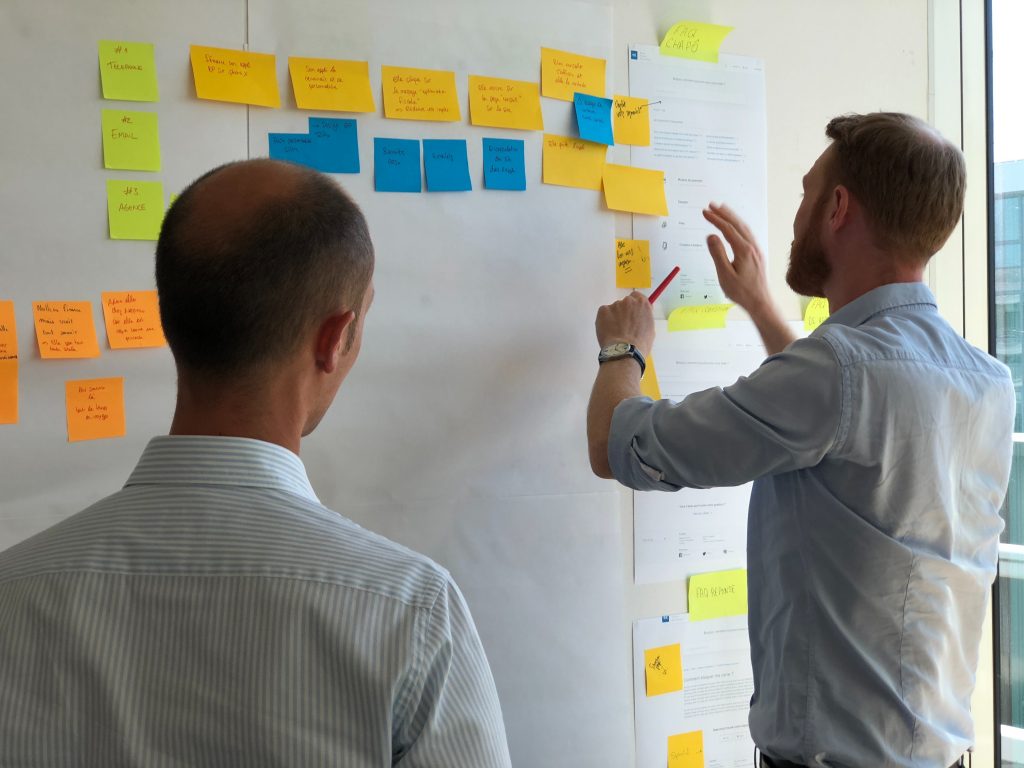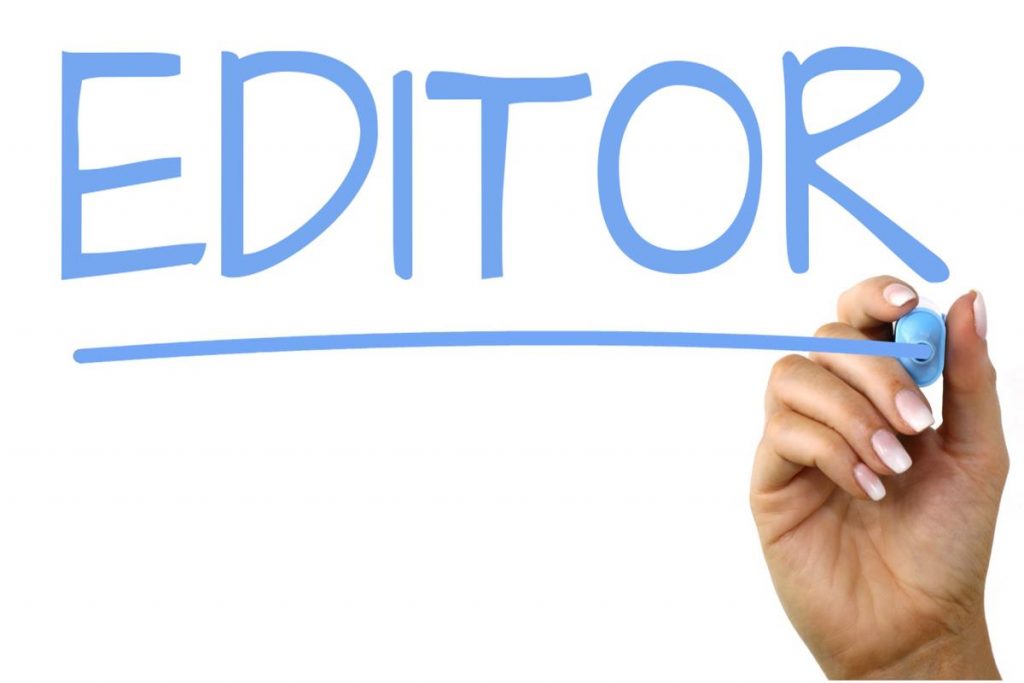Getting a first draft done is like pushing a peanut with your nose across a very dirty floor.– Joyce Carol Oates
Writing a doctoral dissertation is like graduating a military academy: you are so pleased to finish that you have purposely forgotten all the pain and struggle it took. Your joy is in the finishing. But to have graduated means at some point, you had to have started. That means there must be a rough draft, something you will first hate with all your passion, and then work on it, again and again, until you slowly start to fall in love with it. And that first moment, that decision to start the rough draft, is for many the beginning of a years-long emotional gumbo of fear, joy and apprehension, fueled by a burning curiosity and ambition. Throughout the entire dissertation process the emotions you encounter rock you, then center you.
We know about this because we’ve been where you are. Most of us at Precision have either gone through the Ph.D. process or have extensive experience helping Ph.D. candidates, and we remember well its alternating terrors and joys. It’s why we enjoy providing our teammates with dissertation assistance through every stage of the process, and why we as a company are committed to stand by your side until you finish.
We pride ourselves on our dissertation consulting. If you need help outlining your topic, just contact us at 646.553.4730 or email us at info@precisionconsultingcompany.com. For more than 12 years, we’ve excelled at dissertation assistance and editing services. We can not only help you put your ideas down on paper, but make sure they are backed up by proper citations in their proper format (APA, MLA, and Chicago, among others). We regularly assist students at the major online and brick-and-mortar universities, so we are well-versed in not only the standard thesis and dissertation formats, but the specific format of your university’s program. We consider ourselves the universal Graduate Writing Center for those who need statistical analysis and research assistance, particularly dissertation and thesis help.
Perfection is an oppressor.– Toni Morrison
Perfectionism is the voice of the oppressor, the enemy of the people. It will keep you cramped and insane your whole life, and it is the main obstacle between you and a shitty first draft. I think perfectionism is based on the obsessive belief that if you run carefully enough, hitting each stepping-stone just right, you won’t have to die. The truth is that you will die anyway and that a lot of people who aren’t even looking at their feet are going to do a whole lot better than you, and have a lot more fun while they’re doing it.– Anne Lamott
The first thing that happens when you sit down to write your dissertation is that you are visited by a specter called Writer’s block, a.k.a., I-want-to do-it-right-the-first-time-or-do-nothing-at-all. He has an identical twin brother with the same name but a different but equally self-defeating moniker: I-hate-writing-and-it’s-kinda-scary-and-maybe-I’m-not-smart-enough-to-do-this-after-all. Suddenly, fear, loathing, and the blinking cursor start to invade your consciousness. But don’t worry: it’s how almost any writing always begins. Then you accept fate, and decide that sitting in front of the screen doing watching the digital clock in the lower right corner is not helping you, so you begin to type anything at all, just to see the paragraph form. Or, you start talking about your dissertation aloud, and transcribe yourself using that “Dictate” button on the upper-right MSWord menu. These are two of many surefire ways to halt Writer’s block before it begins. Writer’s block threatens every type of writing, from a 400-word essay to a doctoral dissertation.
One of the best ways of getting rid of Writer’s block is to outline, outline, outline. One of tools that is very helpful at the early stages of the research process is to an annotated bibliography. Writer’s block fades into oblivion when you see your full, annotated argument laid out in front of you, waiting for the blanks to be filled. It’s almost like creating an adult-version of color-by-numbers, with the colors being all aspects of your important research. Preparation plus imagination will always equal success.
I’m writing a first draft and reminding myself that I’m simply shoveling sand into a box so later I can build castles.– Shannon Hale
Now one of the best adventures of your life begins. You begin to hear inside your head a John Williams film score beginning, and suddenly you are the star of your own Hollywood action-blockbuster. You are now finally walking down an intellectual road you have wanted to travel for years. As you write, you keep getting these bursts of intellectual energy, because you realize you can get it all down, now, in one place. That reality—that something out of your mind is going to exist in the real world to be examined, discussed, and argued—gives you an immense feeling of dopamine-fueled agency.
Keep in mind that at Precision, we provide comprehensive help for every step of the dissertation process. So if you need to refine your topic as you write your prospectus, we can help with that. If you need to do more research to beef up the literature review section, our team can guide you to find the most updated, relevant material. We have learned what you already know: that if your prospectus is in the right direction, your proposal will be, as well. And if your proposal is sound, you’re halfway there!
It is perfectly okay to write garbage – as long as you edit brilliantly.– C. J. Cherryh
As you begin to write, you look at your draft, and start listing and re-listing all the things you want to say and repeat. You don’t worry about the order of the ideas just yet. The goal is to get them all down. You write down your first thoughts first, knowing that you will have the time to re-think, and re-write, later. You start using the citations you know by heart. Suddenly, all the pain your chair and committee put you through is beginning to make sense. Because now you’re not-as-slowly-as-it-was-before earning your white scientist’s jacket and chi-square. You are exploring your favorite question, committed and prepared.
As your teammate, it’s our goal to ensure that your research is taken seriously by your university and the academic community. So we not only talk to you about your topic and research it thoroughly, we actually think and talk about it among ourselves. One of the great things about being a statistical consulting company is that we know more than one path to get to a solution, and we delight in helping you figure out the best way to do your study, and how it should be designed. Quantitative or qualitative? What’s your plan for data collection? Once you decide your direction, you run the diagnostic (as a rule, we don’t do data collection; your study is your own) and we both pull out our magnifying glasses.
All writing problems are psychological problems. Blocks usually stem from the fear of being judged. If you imagine the world listening, you’ll never write a line. That’s why privacy is so important. You should write first drafts as if they will never be shown to anyone.– Erica Jong
Weird things happen when you start to write something as important as a thesis or doctoral dissertation. Suddenly while typing, you find yourself transported into a bright room. You look around, and you see all of the ideas you’ve been grappling with in front of you. It’s like the film A Beautiful Mind or an episode of the BBC’s Sherlock. Abstract ideas, in two-dimensional form, are floating in front of you. There’s no turning back. You start typing your university’s outlines on the Word document, and begin to fill them in. Slowly, almost without you knowing it, you see the bare bones of Chapters 1, 2, and 3 form before your eyes. They need work, but the important thing is that they exist to need work. You don’t dare tell yourself you’re half-way there, because you don’t want to jinx it.
Because Jinx is the cousin to the Writer’s Block Twins. Murphy’s Law, the All-Father of Preventing Writing From Getting Done, has dispatched them all to torment you as you write. Murphy knows that his brother, Parkinson’s Law (“Work will always expand to fill the time available”) is a neutral, quite indifferent force of nature, and can easily be shifted in either direction, to either help you or hurt you. So, your tasks at work suddenly increase; personal relationships get strained. Weekends get sucked into a chore-or-emergency vortex; you go to bed on Friday night and somehow it’s Monday morning when you awake. Time itself begins to disappear. You hear people around you in the halls of your university whisper about those unfortunate souls who became Eternal ABDs—they didn’t have the skills and the time to do it after all, poor dears!—and then their dissertation clocks ran out. You get a sudden chill even though it’s mid-summer, and Murphy begins to laugh manically, loud enough to echo throughout the now-empty halls.
This is where we, the movie’s supporting character, steps into the frame. We have helped thousands of scholars get their master’s and doctoral degrees. Our secret? Threefold. First, we have mastered the degree process of every major online university in the United States. It’s our goal to know the process of any online university better than anyone, and our research analysts are given the mandate to do just that. Second, we research your topic so we can have a peer-level discussion with you about it; that way, we can help you shape it. Thirdly, we listen to you, and we figure out your needs based on our listening.
One of the many secrets of writing it that it is at least 75 percent mental. It is the last step of a process that begins with thinking, and middles in outlining and planning. If you are prepared and confident, you are almost done with your rough draft! We pride ourselves on helping you reach that dual emotional state. We assist in giving out all the tools available for you to build—and re-build, if necessary—that needed self-assurance.
First drafts are for learning what your novel or story is about.– Bernard Malamud
Your confidence restored, you conduct your interviews and/or crunch your numbers. You look at the results, and realize they are your results. You did it! So you put your notes directly into your Word file to use later. It’s gotta get all down first.
You’re now back in that imaginary white room, and now your scholar robe is getting hemmed. You see a graduation cap and tassel in the corner. And you swear to yourself you will never tell anyone how hard this process is, because you want to look powerful and smart. And when it is done, you are powerful, because the huge ABD boulder you’ve been carried around crumbles into dust like the aftermath of a Thanos snap in “Avengers: Infinity War.” You are light, and free.
Finishing is a wonderful thing. Because it’s the result of vision, preparation and confidence. Reaching out to us shows us that you have all these three things, and that you just need a little help. All the services we offer—research, design study, quantitative and qualitative methods testing, statistics, editing, defense preparation, defense coaching—allow you to relax and enjoy the process, as much as your life can allow.
Books aren’t written – they’re rewritten. Including your own. It is one of the hardest things to accept, especially after the seventh rewrite hasn’t quite done it.– Michael Crichton
By the time I am nearing the end of a story, the first part will have been reread and altered and corrected at least one hundred and fifty times. I am suspicious of both facility and speed. Good writing is essentially rewriting. I am positive of this.– Roald Dahl
So your draft is done, and you feel as if you have added something significant to the universe, that you have solved a mystery without that talking dog and those meddling kids. What you don’t yet know is that this draft, and the next, and even the next, will be not be your final draft. Your final draft is not even the one that passes the defense: there are still revisions after that. Then, when it’s seemingly all over, you start writing parts of it over again for journal articles. And then, an academic publisher beacons, and it’s time to start all over again…
But all of that happens after you finish the rough draft. It’s so important, because you have succeeded in getting to the end of the intellectual process. You have finished a thought, an exploration, an examination of an idea. And that will make all the difference in the future—one that has you as an important part of an intellectual conversation.
At Precision, we’ll celebrate that first draft with you, help you finish the final revisions and, after they get approved, push you to take the next step: publishing in an academic journal. It’s important that your new, important research be published in a peer-reviewed journal, because it significantly adds academic credibility to you and your work. It also is very important, because even teaching institutions now require significant publications in order to receive tenure. We help you identify the right journal for your work, if you don’t have one in mind, and edit and format portions of your dissertation to fit that format. This saves you time as you move on with your very happy post-dissertation life.
The beautiful part of writing is that you don’t have to get it right the first time, unlike, say, a brain surgeon.– Robert Cormier
The dissertation process, no matter how long it takes for you to it, is a significant milestone in your professional life. Doors open that you did not know existed. People ask your advice on all matter of topics because they think you know the answer. And you have given yourself a great gift: the ability to think, reason, postulate, plan, and execute in the marketplace of ideas.
We are happy to play a small role in that transition. It is our way of ensuring that education remains the most powerful tool of all. And it all starts with that idea, that blinking cursor, and your unstoppable will.
For other tips on editing services, formatting, and anything else that can help you meet your deadline with ease, visit our website. Here at Precision, we offer numerous forms of research and dissertation assistance, including help with quantitative and qualitative analysis, which are indispensable in completing work on schedule.
Just give us a call anytime at 646.553.4730 or email us at info@precisionconsultingcompany.com for some one-on-one help with a dissertation consultant, methodologist, or statistician. Our experts in statistics, literature, and qualitative research and analysis will be happy to assist, whether it’s through an editing service or through a qualitative analysis of your current topic to find relevant sources that we can use to render dissertation help. Basically, think of it as having your own private dissertation coach, free for consultation anytime you need it.






